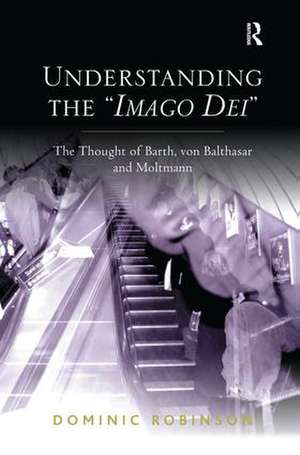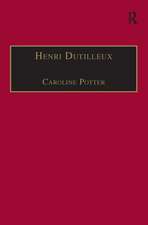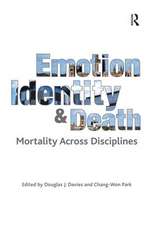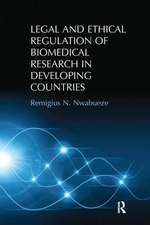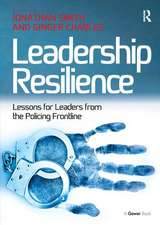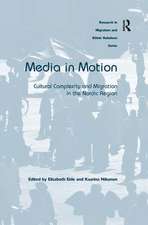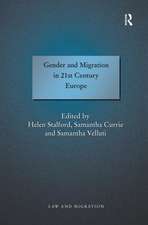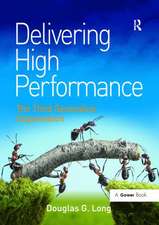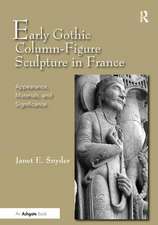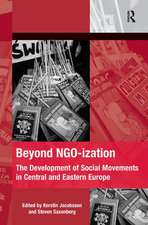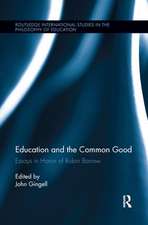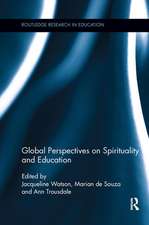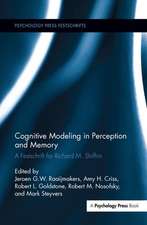Understanding the 'Imago Dei': The Thought of Barth, von Balthasar and Moltmann
Autor Dominic Robinsonen Limba Engleză Paperback – 16 noi 2016
| Toate formatele și edițiile | Preț | Express |
|---|---|---|
| Paperback (1) | 322.31 lei 6-8 săpt. | |
| Taylor & Francis – 16 noi 2016 | 322.31 lei 6-8 săpt. | |
| Hardback (1) | 844.40 lei 6-8 săpt. | |
| Taylor & Francis – 28 mai 2011 | 844.40 lei 6-8 săpt. |
Preț: 322.31 lei
Preț vechi: 416.90 lei
-23% Nou
Puncte Express: 483
Preț estimativ în valută:
61.67€ • 65.13$ • 51.33£
61.67€ • 65.13$ • 51.33£
Carte tipărită la comandă
Livrare economică 11-25 ianuarie 25
Preluare comenzi: 021 569.72.76
Specificații
ISBN-13: 9781138279162
ISBN-10: 1138279161
Pagini: 202
Dimensiuni: 156 x 234 x 11 mm
Greutate: 0.45 kg
Ediția:1
Editura: Taylor & Francis
Colecția Routledge
Locul publicării:Oxford, United Kingdom
ISBN-10: 1138279161
Pagini: 202
Dimensiuni: 156 x 234 x 11 mm
Greutate: 0.45 kg
Ediția:1
Editura: Taylor & Francis
Colecția Routledge
Locul publicării:Oxford, United Kingdom
Cuprins
Contents: Introduction; Imago Dei: the historico-theological background; Karl Barth; Hans Urs von Balthasar; Jürgen Moltmann; Concluding relections: broader horizons; Bibliography; Glossary; Index.
Recenzii
'By comparing how three major thinkers explore human dignity as a call towards divine fullness, Dominic Robinson offers us a lucid and illuminating study of a key issue in Christian theology.' Michael Paul Gallagher SJ, Pontifical Gregorian University, Italy 'Dominic Robinson has chosen a major Biblical theme - "human beings as the image of God" - and charts its interpretation in the related but contrasting work of three major theologians: Barth and Moltmann from the Reformed tradition and the Catholic Balthasar who engages responsively and critically with the Augustinian Protestant tradition. At stake in the discussion is the question of the human subjective capacity, the role of Jesus Christ in conveying true identity to us and the oscillation within the Western theological imagination about the possibility of a free human response to God. Robinson offers us a well considered, insightful and ecumenically focused contribution to our grasp of these central themes. His work, bringing out the consonance between Balthasar and Pope Benedict, brings out the best of recent Roman Catholic work in this key area of systematic theology.' John McDade SJ, Heythrop College, UK 'This is an interesting and enlightening work. Robinson has an obvious passion for a view of the imago Dei that informs humanity’s understanding of God’s love for it and the potential for humanity’s response of love. This makes it a book to be recommended.' Regent’s Review 'Robinson’s argument is tightly woven, and it tightens with each successive chapter. His lucid prose clearly signals his points, approach and larger arguments... a fine and helpful theological analysis.' Modern Believing 'This book makes a valuable contribution to contemporary discussions of the imago Dei. It provides a thorough historical, analytical, and critical engagement of the thought of three important twentieth century theologians in regard to this doctrine. As human beings in today’s world struggle for me
Notă biografică
Born in Lancaster in 1967, Dominic Robinson entered the Society of Jesus in 1991, and was ordained a priest in 2002. He studied Theology at St Mary's College, University of St Andrews, Heythrop College, University of London, Weston Jesuit School of Theology, Cambridge, Massachusetts, USA, and researched his doctorate at the Pontifical Gregorian University, Rome. He has also studied Philosophy, Politics and Economics, at Campion Hall, Oxford. He is currently Lecturer in Dogmatic Theology at Heythrop College, University of London, and works in adult religious education in the Archdiocese of Westminster.
Descriere
As theologians across confessional divides try to say something significant about human dignity in our contemporary society, there is fresh interest in the ancient Christian doctrine that the human being is created in the 'imago Dei'. Robinson examines the 'imago Dei' debate through three giants of twentieth century theology - Karl Barth, Hans Urs von Balthasar, and Jürgen Moltmann. Fresh analysis of ecumenical contributions places the development of the doctrine in the context of the ongoing process of ecumenical dialogue on the dignity of the human person.
